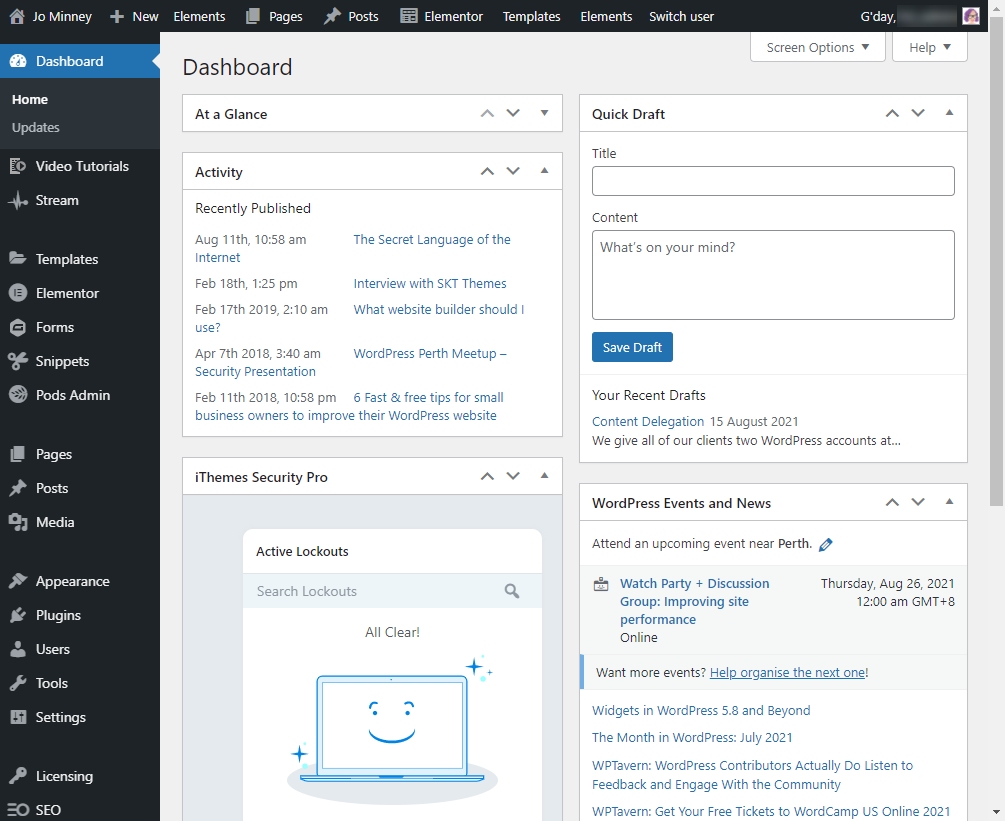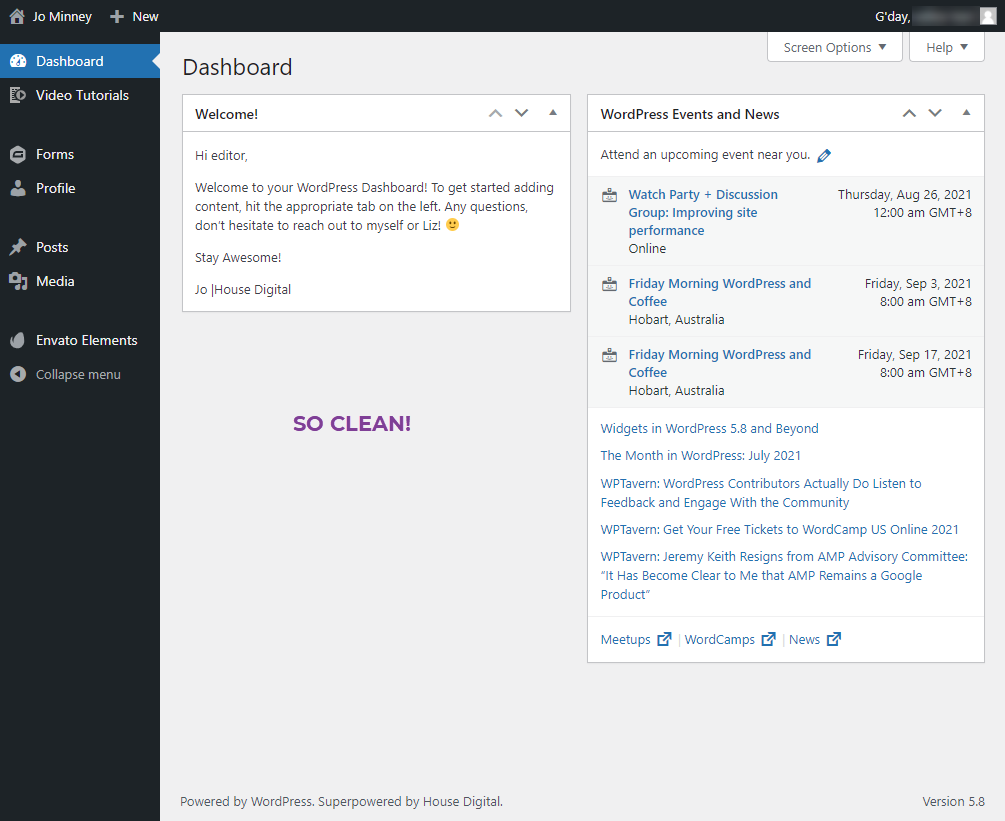tldr: Work smarter not harder. One person doesn’t have to do everything and probably shouldn’t! Includes a case study on how I tackle this issue using WordPress.
We give all of our clients two WordPress accounts at a minimum – the one they use 99% of the time, and the one they use if we’re ever eaten by sea monsters. This makes sense for the way we operate because our clients don’t need to know or care about things like backups, plugin updates, or security scans other than that we’re taking care of them.
There is a massive benefit to this setup for both of us – we both know that they won’t break things accidentally! It also means they’re not distracted when they log in by things like plugin update notifications. In fact, when I’m writing blog posts on my own website I use my editor profile rather than administrator because it’s so much less distracting having a small handful of options compared to the sometimes overwhelming administrator dashboard.


Case Study
For a lot of clients, we take this concept even further. Let’s take, as an example, our friends at Business Station. Their organisation has a tonne of projects and stakeholders on the go at any one time.
Rob, the marketing coordinator, regularly creates and updates content. He wants to create campaign landing pages and keep the Home page content sharp.
Rebecca manages the new Wanneroo Allied Health Precinct, and she needs to make sure their page is attracting new customers. She needs to add events held at her venue and manage things like how people can book a tour or training room.
Agata manages the Digital Solutions Program and needs to maintain her many advisors, register new (unique and eligible) ABNs to the program, and publish Workshops and Webinars. She has a team who assist with parts of this – and a third-party piece of software that needs to “speak to” the website.
I could go on, but essentially what all this means is that there are quite a few moving parts, responsibilities, and people involved in maintaining their website on a daily basis. If one person had to be responsible for everything, they’d likely never get anything published – which is why we have created lots of different “mix and match” user access levels and roles they can give to the people who need them.
Rob can create popups, landing pages, and content and has advanced design tools at his disposal. Other users are limited to the brand and design elements controlled by Rob, so they can’t go rogue and publish things that don’t meet the brand guidelines.
Most of Agata’s team, who are responsible for the many events run by the Digital Solutions program, have very simplified dashboards focusing on event publication and management. Ag and her second in command have additional access, giving them the ability to bulk upload registrations or edit the registration forms as needed.
Business Station is certainly not the only client of ours who takes advantage of the granular level of access WordPress can provide. Our friends at Tourism Rockingham have a team member dedicated to marketing and another who is entirely focused on member engagement and booking accommodation. It doesn’t make sense for both of them to learn their way around everything when there is very little crossover in what they do. Each of their dashboards is optimised to make what they do as easy as possible.
Other Benefits
The flip side to only giving users access to what they need is that you can give team members ownership over particular content that needs to be updated. One of our clients has a calendar of events that they were having trouble keeping current because they relied on a specific team member (who otherwise doesn’t need to make changes to the website) to send through the revised calendar whenever changes were made. We pointed out to them that we could essentially cut out the middle man (or woman, in this case) by giving her access to the calendar directly, and nothing else – then removing that access from all other team members except their manager. Not only can they now make changes directly instead of via email, but it is also now 100% clear who is responsible for this.
Conclusion: Work smarter, not harder.
WordPress is definitely not the easiest platform to use ‘out of the box’ and it becomes increasingly more difficult to get your head around every time you ask it to do yet another thing. Having said that, I think that one of the platform’s biggest strengths – the ability to set up custom user roles and customise individual user dashboards – can help to combat what many consider one of its biggest weaknesses.

